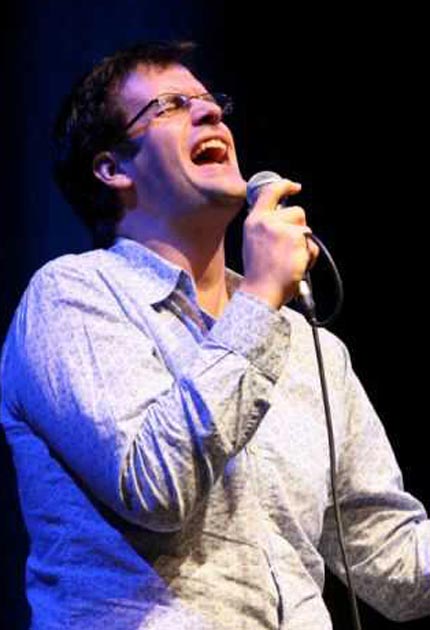Marcus Brigstocke: God Collar, Vaudeville Theatre, London
Faith, hope and occasional hilarity

Your support helps us to tell the story
From reproductive rights to climate change to Big Tech, The Independent is on the ground when the story is developing. Whether it's investigating the financials of Elon Musk's pro-Trump PAC or producing our latest documentary, 'The A Word', which shines a light on the American women fighting for reproductive rights, we know how important it is to parse out the facts from the messaging.
At such a critical moment in US history, we need reporters on the ground. Your donation allows us to keep sending journalists to speak to both sides of the story.
The Independent is trusted by Americans across the entire political spectrum. And unlike many other quality news outlets, we choose not to lock Americans out of our reporting and analysis with paywalls. We believe quality journalism should be available to everyone, paid for by those who can afford it.
Your support makes all the difference.The TV-friendly comic Marcus Brigstocke looks as much at home on the panel of Question Time as he does performing live stand-up on the West End stage. His gift of balancing gravitas and gall makes him one of a group of comedians, along with, for example, Daniel Kitson, Stewart Lee, Robert Newman, Robin Ince and Paul Sinha, who you go to see for how they think and what they think as much as to laugh at the product of the two.
However, God Collar, the "story" of one atheist supposedly leaving a window of doubt open for God, is a narrowly missed opportunity to synthesise message with mirth. In attempting to fuse the two there is some great fun to be had, though, and Brigstocke, tonight staying true to his Morriseyesque fashion sense of floral shirts, kicks off proceedings with a great sequence about the bus-advert campaign of the British Humanist Association, whose posters read: "There's probably no God. Now stop worrying and enjoy your life", and the riposte from a raft of Christian groups. What if all theological debate was conducted through public transport the bespectacled comedian wonders? Perhaps we would get used to announcements about engineering work along the lines of: "The only way to High Barnet is through the medium of prayer."
Taking care to bash the foibles of the holy trinity of religious targets, Christianity, Judaism and Islam, Brigstocke leaves us in little doubt that the "God-shaped hole in his life" that he had recently started to feel, was never going to be filled by dogma. During his irreverent journey through religion he mixes up the shoes at a mosque, keeps Jehovah's Witnesses in a near-hostage situation and takes a series of pot shots at the easy target of the Pope, including: "The Pope went to Poland last year – something he very much wanted to do as a younger man..."
Disgusted that the same belief system lies behind his grandmother's wish to see her late husband in heaven and the supposed heavenly rewards of the 9/11 terrorists, Brigstocke's ire towards some of his targets leads him to end some routines by cursing them in a way that seems smug or gratuitous or both.
Meanwhile, atheists are very much in his line of fire too, and perhaps more creatively so. "You're not cleverer than everyone else" he reminds those in the audience who have identified themselves as such (the vast majority of the room). The perceived monopoly of truth and intelligence by atheists seems to have been fuel to the fire of Brigstocke's personal spiritual meanderings and he reserves one of his most savage satires for Richard Dawkins. Brigstocke portrays him as prissy, preening and smug, and sums up one of the chapters of The God Delusion as saying: "Occasionally people have things called feelings. These are best avoided."
While the 36-year-old comic's scathing wit is on a roll at times and some of his diversions from the theme, such as his despatch of people dependent on their iPods, can be top notch. But the show loses focus, especially in the second half where amiable stuff about his kids and his grandparents may be warm but it doesn't quite put the human into Humanist in terms of backing up any point he might be making. Equally, while the tales of a great, late, university friend of his come closer to helping us understand his spiritual wobble, comedically they fall under the heading of "my mate is really funny, he once did this...", ie pranks one step removed, something that rarely works.
Nevertheless, in spite of some slightly less-than-divine diversions, the empirical evidence suggests there are a number of reasons to believe in Brigstocke's stature as a figurehead for comedy, even if he is not yet an icon.
To 11 February (0844 412 4663)
Join our commenting forum
Join thought-provoking conversations, follow other Independent readers and see their replies
Comments